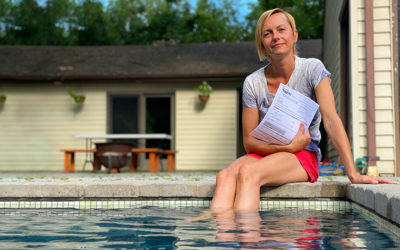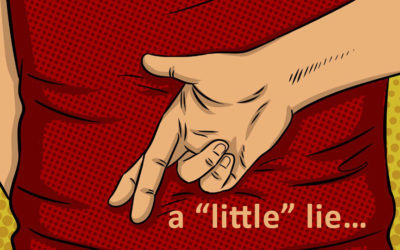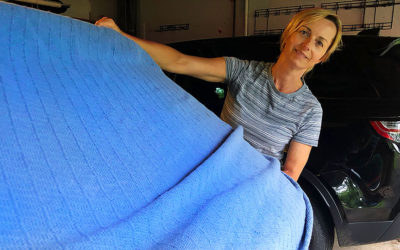BUSINESS INSURANCE
Premium depends on the risk
Many things determine what you pay in premium for General Liability coverage, but most important is your classification code. It is obvious that an accounting firm is taking on a lot less risk compared to a roofing company. The level of risk is going to be represented in the amount those businesses pay for premium.
COMMERCIAL GENERAL LIABILITY
If you’re a contractor and do not own any commercial buildings that require property insurance, or you have no need to cover payroll or other operating expenses, you need Commercial General Liability Insurance that protects small-business owners from claims of injury, property damage, and negligence related to your business activities. The indemnity provided by a liability insurance policy helps you cover the costs associated with mounting a legal defense.
Commercial General Liability protects you against:
Lawsuits over third-party bodily injury and property damage
Immediate medical expenses for third parties injured on your business premises
Personal injury lawsuits (including slander and libel)
Advertising injury lawsuits (including copyright infringement)
Product liability lawsuits
Because General Liability insurance covers the most common types of claims that many businesses face, it can help you stay in business when an accident happens. It helps protect you if a customer is injured at your place of business. It can cover damage or injuries caused by your employees at a client’s site
BOP not for every business
Not all businesses qualify for a BOP. For example, a factory or a jewelry store, because of the unique risks, usually require more customized coverage than what’s included in a standard BOP.
BUSINESS OWNERS POLICY (BOP)
In a single, convenient package, a BOP provides the core insurance that most small businesses need, including:
- Property Insurance—Protection for your building or office space, as well as property owned by your business, such as equipment and inventory.
- Liability Insurance—Coverage for costs that arise if someone is injured at your business or by using your products or services.
- Business Interruption Insurance—Also known as Business Income insurance, this coverage replaces lost revenues in the event that your business has to shut down due to fire, wind damage or other covered losses.
BOP typically does not include commercial auto insurance, workers’ compensation, health or disability insurance or liability insurance for claims of wrongful professional practices.
Tax deductible
Business auto coverage policies allow you to list anyone that you employ on the list of insured drivers.
Some types of business car insurance are “Non-Owned” auto insurance, which is coverage to the business for any situation in which an employee is using their personal vehicle for company purposes.
Your commercial auto insurance is tax deductible. If you’re self-employed, you might be able to deduct your business car insurance premium under your Schedule C.
COMMERCIAL AUTO
While commercial vehicle insurance has some similarities to your personal auto policy, there are important differences in coverage, exclusions, definitions, limits
What it covers:
Bodily injury liability coverage – pays for bodily injury or death resulting from an accident for which you are at fault and in most cases provides you with a legal defense.
Property damage liability coverage – provides you with protection if your vehicle
Combined single limit (CSL) – Liability policies typically offer separate limits that apply to bodily injury claims for property damage. A combined single limits policy has the same dollar amount of coverage per covered occurrence whether bodily injury or property damage, one person or several.
Medical payments, no-fault or personal injury coverage – usually pays for the medical expenses of the driver and passengers in your vehicle incurred as a result of a covered accident regardless of fault.
Uninsured/underinsured motorist coverage – pays for your injuries and certain property damage caused by an uninsured, underinsured or a hit-and-run driver.
Collision coverage – pays for damage to your vehicle when it hits or is hit by another vehicle.
Comprehensive physical damage coverage – pays for damage to your vehicle from theft, vandalism, flood, fire, and other covered perils.
No fault coverage
Workers’ Comp is a “no fault” system so an employee is covered even if it is his/her fault. But if an employee is addicted to drugs or alcohol they would certainly lose their right to workers’ compensation.
WORKERS’ COMPENSATION
When an employee is injured on the job, Workers’ Compensations Insurance can help businesses cover medical costs and related expenses like lost wages. Often, this coverage is required by law.
In addition, state laws usually require employers to have Workers’ Compensation Insurance to cover any liability they might have for causing or failing to prevent the injury or illness. When an employee is injured or made sick at work, Workers’ Comp benefits may be able to pay for:
Their medical costs
Partial lost wages
Ongoing care and rehabilitation
Funeral expenses
Death benefits
Workers’ Compensation benefits can cover a whole range of work-related injuries, including: repetitive stress injuries, broken bones, back injuries, falls, allergic reactions etc.
No “one-fits-all”
The cost of this policy varies dramatically depending on the characteristics of the property to be insured, the protective safeguards of the building, the nature of business conducted in the building and even the neighboring businesses.
COMMERCIAL PROPERTY
Whether you are the owner of an apartment building bigger than 4 families, mixed-use building consisting of an apartment and commercial space or an office building, you will need the Commercial Property Policy. Covering the exposures of an apartment house is not much different than covering a warehouse. The main differences in coverage would generally be contingent on the type of tenants occupying the premises and their operations. Typical commercial building policy consists of a few parts:
Building Coverage: covers the costs of replacing the property in case it was completely destroyed by a fire or hurricane including the expense the demolishing any remnants, clean-up
Personal Property. Certain equipment used to maintain or repair the building property, like lawn mowers, ladders, and other types of tools can often be categorized as business personal property. are also categorized on this same form. The business personal property or contents coverage usually provides protection to the equipment used to heat, cool, and protect, such as fixed mounted air conditioners, alarms, video surveillance
Loss of Rental Income covers on an Actual Sustained Loss basis for a period of one year. This essentially means that coverage will be afforded to replace the loss of rents for a period of one year or less.
Other Structures are separate buildings or structures located on the property but not connected to the described premises. Tool sheds, garages, swimming pools, cabanas, gazebos can be considered as other structures.
Commercial Liability provides coverage to a named insured for property damage or bodily injury to a third party in the event of a covered loss. Coverage under general liability section includes:
– Bodily injury due to trips and falls
– Products and completed operations provide coverage for injury caused by a faulty product or faulty installation
– Operations liability affords coverage for injuries to the third party or property in the course of conducting the operations of the business
– Personal and advertising injury coverage provides protections for injury to the persona
Workers Compensation covers employees hired and under the control and direction of the landlord.
Flexible policy duration
Builders risk policy can be purchased for the period of 1, 3, 6, 9 or 12 months, depending on your project. It can easily be renewed for the desired time, as some unexpected building delays happen all the time.
BUILDER’S RISK
Builder’s Risk insurance, also called “course of construction” insurance is a type of property coverage for buildings under construction, as well as all of the materials and equipment used in the project.
The coverage can be especially important if you are working with materials that are prone to damage, or if you are working in an area that is prone to certain types of severe weather. It is also important coverage that protects your investment from unforeseen risks.
Your Builder’s Risk insurance policy can be structured to cover the following:
Commercial General Liability protects you against:
Property damage: Includes construction material, heavy machinery and equipment, temporary structures, cribbing, false work, fencing, scaffolding, construction signs and landscaping
Theft: Some builders risk insurance policies will cover theft of building materials; to get this coverage, you may need to have a gated job site
Labor costs and earned profits: Replaces labor costs, income and expenses
Perils of nature and man-made disasters: Hurricanes, fires, blizzards, severe hail storms, lightning,
Other damages: Negligent workmanship, flawed materials or design
Builder’s Risk policy does not cover accidents and injuries at the workplace.
“Right to defend” vs. “duty to defend”
Policies are typically either “right to defend” or “duty to defend.” The first means that the carrier can defend your business from a lawsuit, but it doesn’t have the obligation to do so. “Duty to defend” means that the carrier has the obligation to defend you as long as your claim meets the conditions outlined in your policy. Get “duty to defend”. It is better.
.
PROFESSIONAL LIABILITY
A business may be subjected to a professional liability lawsuit. These suits may claim that you’ve been negligent or made an error or omission while performing your services. Liability damages may cost hundreds of thousands of dollars.
Also known as Errors and Omissions Insurance, Professional Liability Insurance is coverage that can help offer aid when a client or customer claims that your business.
Failed to provide promised services
Was negligent in rendering its professional services
Provided shoddy, incomplete, or incorrect work
Made mistakes or oversights
Without the coverage that Professional Liability Insurance provides, a lawsuit over your professional work could be a catastrophic blow to your business.
UMBRELLA
Commercial Umbrella Insurance provides businesses with additional liability coverage to help protect them against the potentially ruinous costs of claims. Significant assets can be at risk when businesses are the target of lawsuits. If the cost of a claim exceeds the limits of a business’s underlying primary insurance policies, Commercial Umbrella Insurance extends liability coverage for an additional layer of insurance to further protect business assets. Without Commercial Umbrella Insurance, business owners could be obligated to pay out of pocket for legal fees, medical bills, and damage expenses that exceed the limits of their underlying primary business coverage.
How much insurance coverage
Insurance Blog
Top factors that will increase homeowner’s insurance premiums
Every insurance company will assess the value of your home before issuing the home policy. The replacement value will be the main factor in determining the policy premium.
Little insurance lies with big consequences
When disaster strikes but insurance denies paying the claim, financial hell breaks loose. It’s often caused by misleading information on the original application for coverage.
Temporarily Suspending Your Car Insurance
Going away for an extended vacation? Living for military deployment? Garaging your convertible for winter? All of the above trigger a question: do you need the insurance for the vehicle you don’t use?
Get started online
Give us 24 hours and we'll give you the price!
PHONE
ADDRESS
258 DAYTON AVENUE
CLIFTON, NJ 07011
Serving New Jersey


